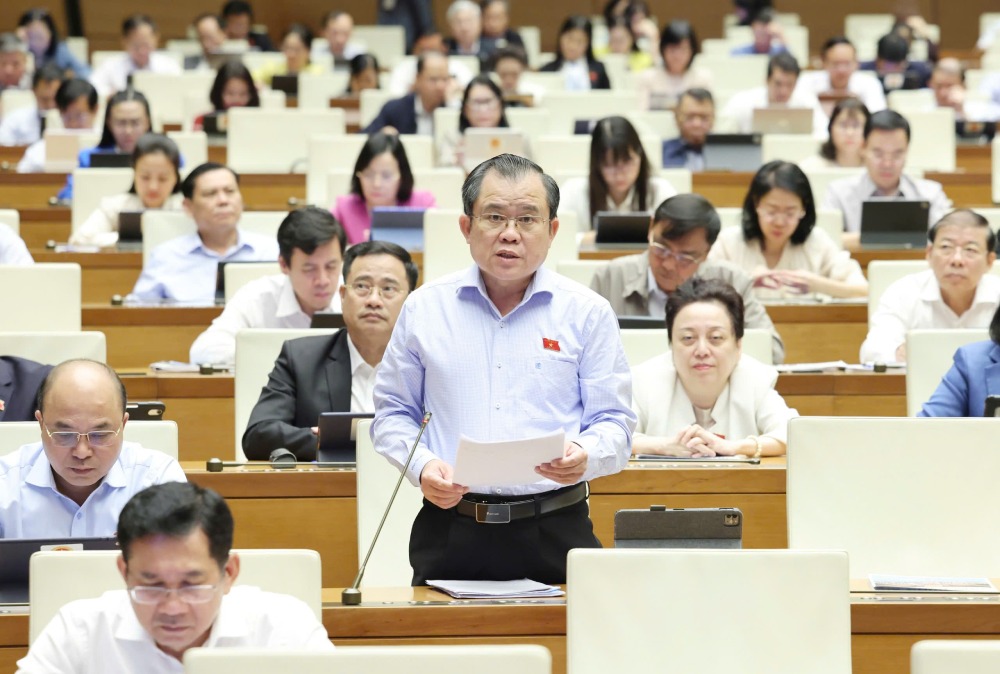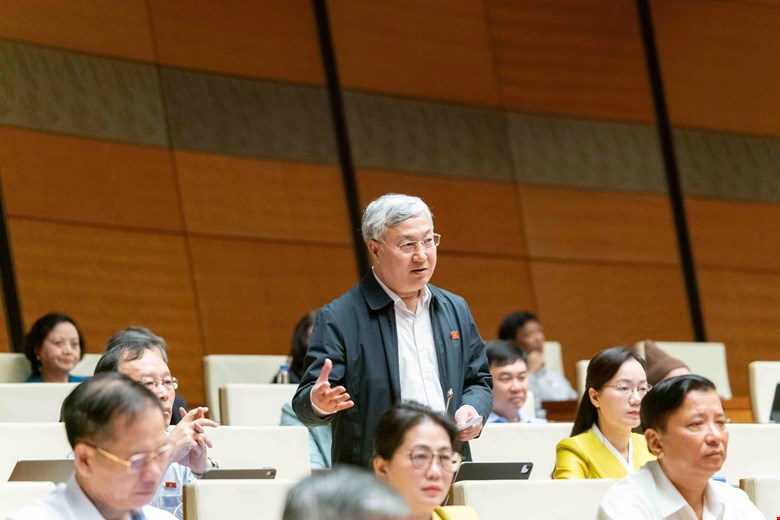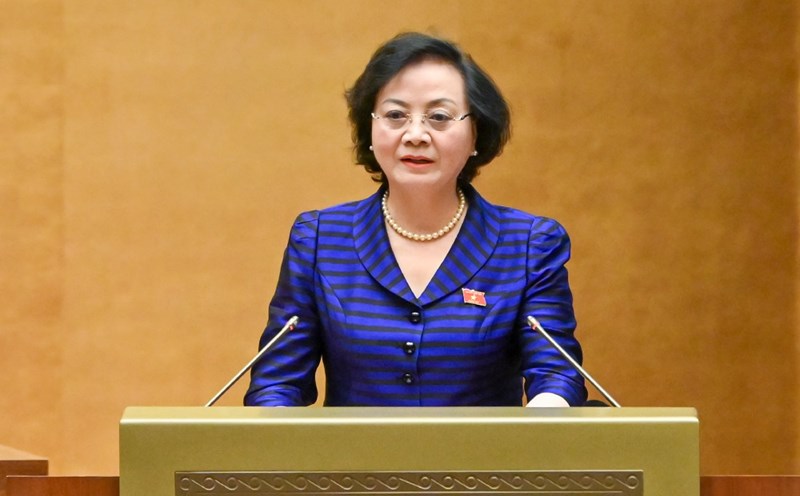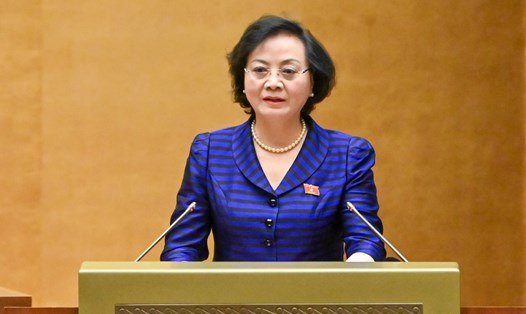For civil servants and public employees to make a living on their salaries
On November 13, discussing the draft Law on Civil Servants (amended), delegate Tran Thi Thu Hang (Lam Dong Delegation) said that the rights of civil servants regarding salaries, bonuses and salary-related regimes are stipulated in Clause 3, Article 22.
However, the delegate said that the implementation of salary policies and preferential regimes for civil servants is still inadequate.
When implementing a two-level government, there are many tasks for civil servants and public employees but their salaries do not increase significantly.
According to the delegate, the cost of going to work far away, renting a house, studying and other allowances is very large... There are some civil servants who do not rotate, do not have to move to stay in the province to work, but the cost and price are increasing.
In order for civil servants and public employees to make a living on their salaries and feel secure in contributing long-term to the industry to build a team of professional, honest, dedicated civil servants serving the people, the delegate suggested that strong reforms in salaries should be needed.
"City officials are paid a salary commensurate with their job position, so that they can live and devote themselves to their profession, love their profession and always be creative with their profession," said the delegate.

Preventing "inner and outer legs" when civil servants contribute capital and run businesses
Delegate Nguyen Tam Hung (HCMC Delegation) said that the draft law has not clarified the scope of the ban on participating in business activities.
Therefore, the delegate proposed to clearly stipulate: civil servants are not allowed to invest, contribute capital, operate or guarantee for enterprises or organizations operating in the same professional field as their units.
"Expanding the scope of the ban like that is necessary to prevent the situation of "inner and outer legs", avoiding conflicts of interest, especially in the fields of health, education, and scientific research - where the line between public service and private interests is easily confused," he said.
Regarding the right of civil servants to sign contracts to perform professional activities and business activities, the draft law allows civil servants to sign labor contracts and service contracts with other agencies and organizations if the law does not prohibit them.
However, the delegate suggested that the drafting committee add the obligation to declare, report and be approved in writing by the head before signing. At the same time, it is necessary to stipulate a "colding" period of at least 24 months after ceasing to hold a management position to participate in the operation of a private organization in the same field.
This regulation aims to ensure transparency and prevent the conversion of benefits from the public sector to the private sector.

Debate on this content, delegate Tran Van Lam (Bac Ninh delegation) said that civil servants are working very well in which field, so let them promote and expand to the outside in that field.
"If we require civil servants to do business in areas that are not their forte or priority, then it is considered as being allowed and almost not allowed," he said, emphasizing that the core issue is to establish a management mechanism in the public sector so that they cannot take advantage and cannot do so if they have such an intention.











